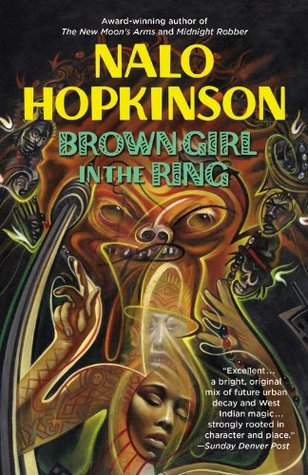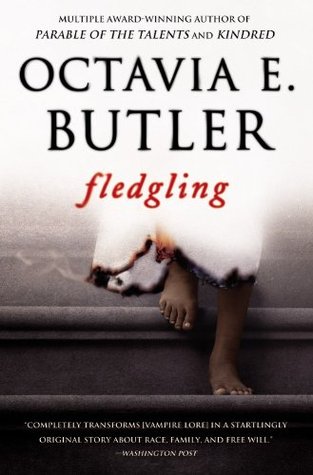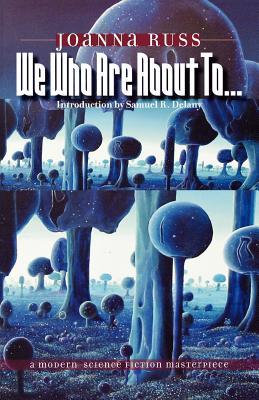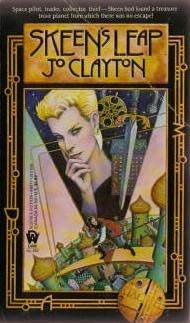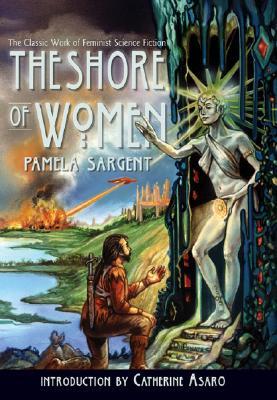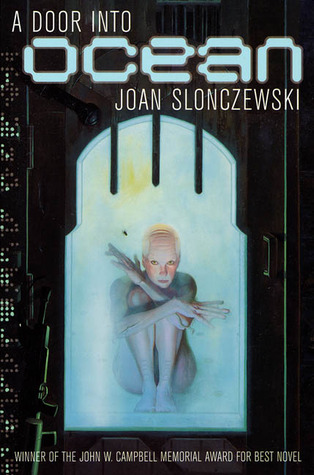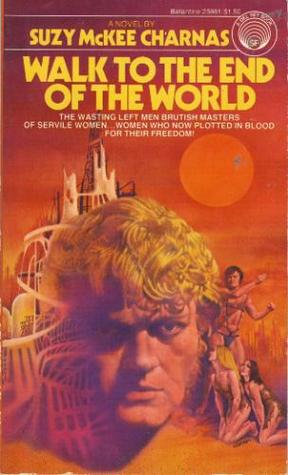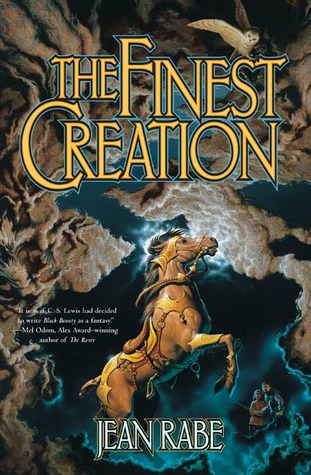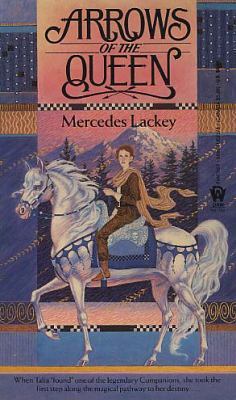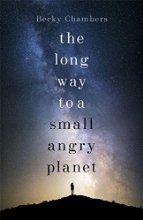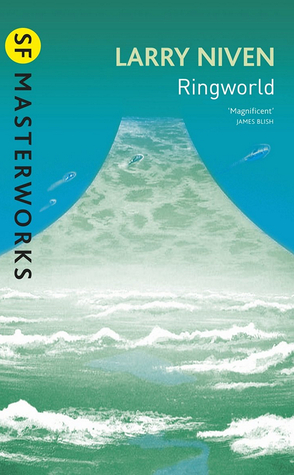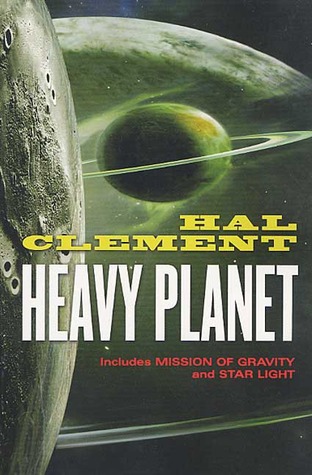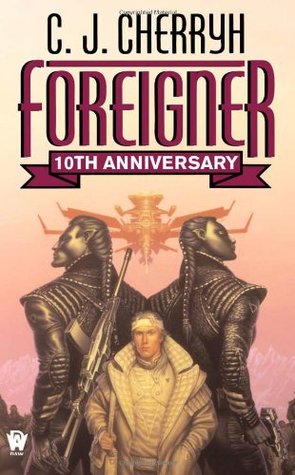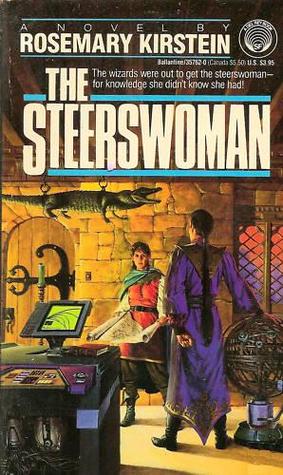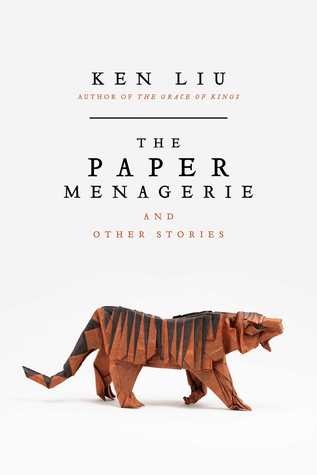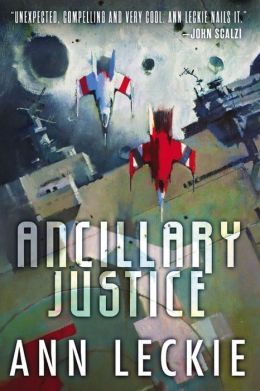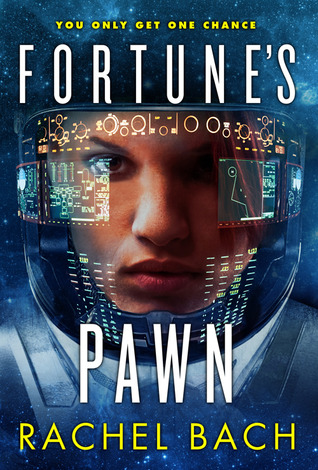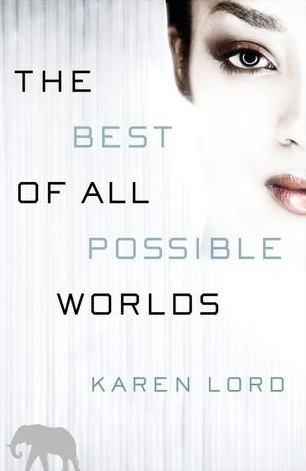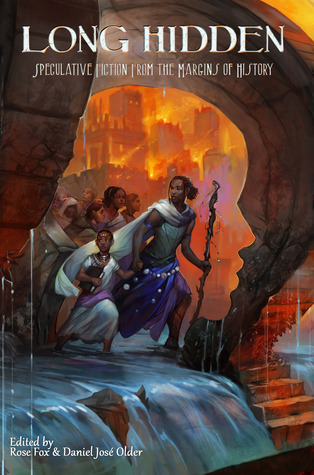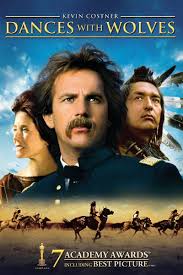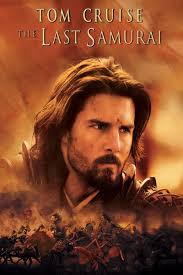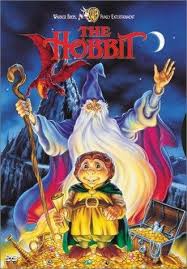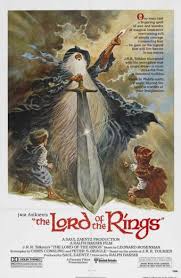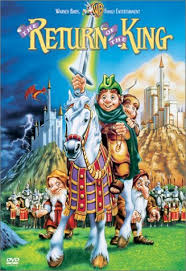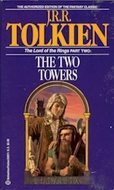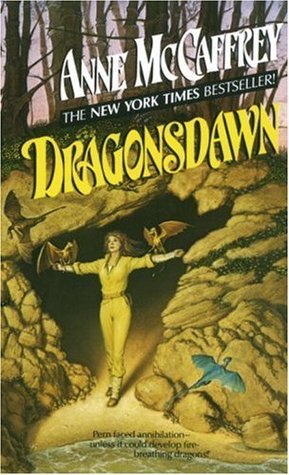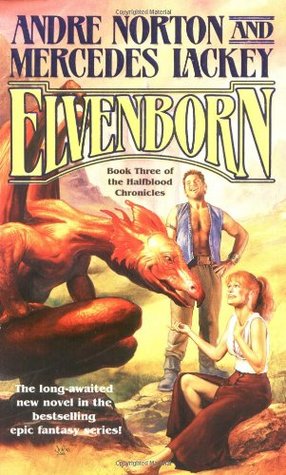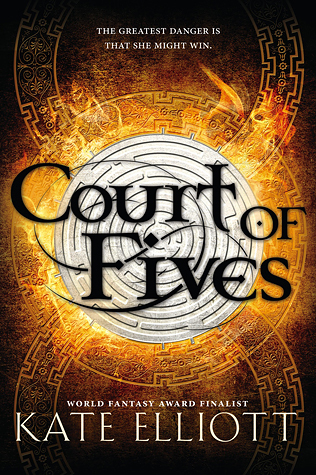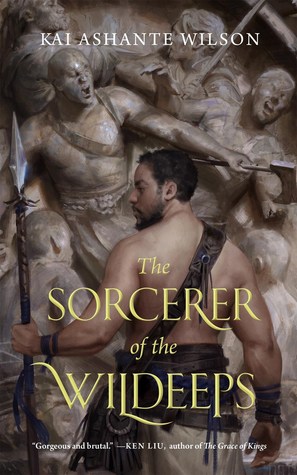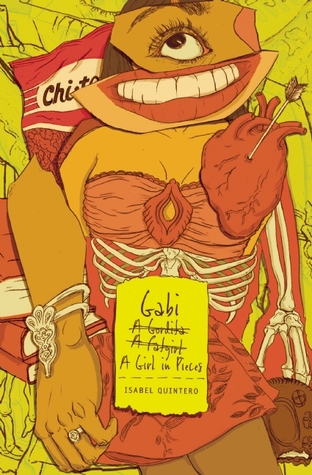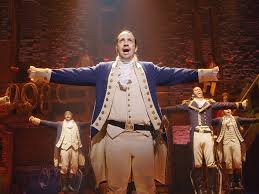Transcript:
JSM - Me
JI - Justina Ireland
CP - Charles Payseur
*Intro music*
Welcome to Cabbages & Kings, I'm your host Jonah Sutton-Morse, and I want to start by apologizing for the delay in getting this out. March got a little bit crazy & I realized it was going to be a little while until I got the new episode out & also I wanted to reimagine the show a little bit, so thank you for your patience. I am rethinking the show a little bit. You are probably at the beginning of most episodes going to hear me rambling. Right now it's about the show, in the future it'll be about what I'm reading. I am also going to have some more guest spots that I am hoping to integrate. In this episode we've got Charles Payseur back with some short story recommendations for us. I will probably as part of this not be holding quite so strictly to the 30 minute limit. Between me, other guests, and the main interview I would expect the show will often be pushing about 40 minutes, but hopefully as I get better at editing & finding key moments in an interview, that'll move back down. I am certainly not giving myself permission to go ramble forever. Today is the first of two parts interviewing Justina Ireland.
*Interstitial music*
JSM - My guest this episode is Justina Ireland a young adult author and purveyor of awesomeness. Among many other things, Justina often Tweets and Tumbls about representation of historically marginalized identities, and I wanted to bring her on to talk about this representation. Specifically what it's like to read an identity presented well on the page, and what exactly presented well even means. And also ways that reader can see negative presentations deconstructed on the page. And the ways authors can do that, and present problematic material.
I usually start by asking guests about their path into the Science Fiction & Fantasy genre. Can you tell us a bit about your reading history & what brought you into the genres that you read.
JI - Sure, yeah, I do read pretty broadly, I read a lot of SFF, that's kind of where my heart has always been. The first I think, I mean most people usually point to something like A Wrinkle In Time as the first book where they fell in love with SFF, and for me it was actually Anne McCaffery's Pern Books.
JSM - YEEES
JI - I actually read the Pern books out of order because you know when you're a poor kid & you go to the library you just take whatever's on the shelf. So I ended up reading, the first book I ended up reading was DragonsDawn, which is this weird mix of SF & F, and so I spent a lot of time reading that kind of stuff and kind of escaping, because like a lot of kids I had a terrible childhood and so one of the reasons I like SFF is it gives you this outlet to explore heavy subjects without really exploring those really heavy subjects. So when you talk about race relations or race issues, there's this automatic instinct to hunch your shoulders and take a defensive posture, but when you're talking about y'know the interplay between cat people & mice people, it's a different kind of interplay. So I've always liked that ability to look at social aspects or aspects of social justice within fantasy & SF, without really looking at those aspects.
So even within young adult when I read Young Adult books or Middle Grade or whatever I read, there's always that aspect of SFF. Young Adult is a little bit more willing to embrace the idea of representation and this, y'know this diversity soapbox, whereas there's a lot of pushback in the SFF world.
JSM - Yeah
JI - Yeah, and very kind of unexpected pushback - wow I didn't really think anybody could actually thing that way
JSM - I was just going to note, since I often run these well after the interview that this is the weekend after the World Fantasy Award announced Lovecraft will no longer be the bust of the WFA.
So some of tgat pushback & people owning their bigotry is happening online right now.
JI - Right, and I'm just kinda surprised because it's Lovecraft, but like no one (garble) for Poe, like no one is out there picketing the streets because someone talked bad about, um, Bram Stoker. It's less about Lovecraft & more about the idea of having to give anything, like give any kind of ground. Like if we let Lovecraft be removed from the WFA then the terrorists win.
*Interstitial Music*
JSM - Yeah, do you remember either one of, or an early time or a recent time that you found yourself feeling represented in what you're reading? I'm assuming it did not happen with Dragonsdawn ...
*laugh*
JI - No, so the strangest thing is it was a different Anne McCaffery book, I think it was Elvenborn, which is this realy really kind of terrible book, with humans and elves - Anne McCaffery & Andre Norton are the two writers, they co-wrote it, and it came out in the mid 90's
JSM - I think Lackey was the coathor, so Andre Norton & Mercedes Lackey
JI - Yeah, there you go, Andre Norton & Mercedes, thank you
The whole premise of the book is there's an alternate planet fantasy kind of realm where like the royalty they're basically like white plantation owners, and humans are enslaved. But humans have magic but they're all collared
So, I think Norton died before the series was finished, because there were a couple more books that were supposed to happen.
Anyway, there was this character who was half-human and half-elf, so she has this magic & she finds a way to lead a rebellion, which y'know yadda yadda yadda, but she was the first character I had ever that was kind of existed between two worlds. I'm actually biracial, my mom is white & my father is black, and that was a constant theme when I was growing up, that existence between two worlds, and that kind of fitting in, really in neither world, so when I read this book I was, for me it was kind of like oh, wow, this was really awesome, you can do this! But at the same time I kind of was irritated that you had taken something like the idea of being enslaved, and like chattel slavery and then just put white people in there. *laugh* which is kind of like a terrible thing, let's talk about slavery without talking about slavery.
JSM - the flip side of fantasy & SF being able to tackle social issues without really tackling social issues.
JI - Right, it's very much a double-edged sword to use a cliched term, but at the same time it was nice to see a couple of authors taking on this idea, and there was a whole bunch of stuff about feminism and like equality within there as well, but mostly it was just nice to see someone take on this idea of, y'know, obviously slavery is inherently bad, but how do you reconcile that with, because by the time you get to the third book you get the elves' point of view and you realize y'know they're thinking feeling people too, they're not all just evil, terrible plantation owners, so how do you reconcile being a good person with participating in this ... kind of system that is, terrible?
JSM - mmhmm
JI - I kind of like really enjoyed that but at the same time
I was kinda like, you took black people out of slavery, and you just completely erased them from the landscape, and we always talk about reading White, and that when you read the default is White unless somebody tells you otherwise, and it was very much, this was very much the case, like the humans had tan skin and the elves had really, really pale skin, and that was really the only variation in skin tone you got in the books.
So, just more recently I read Kate Elliott's Court of Fives, and she does a similar thing. Her main character is biracial as well, but Kate does a really great job of actually saying this person is half black, and she talks about how the mother has this very coily hair, how she's very tall, how the main character is very strong, and everyone looks at her and calls her a mule because of her looks, but she does a great job of doing the same thing that Lackey & Norton had done, but without the erasure of people of color, and I think that's so so important, to be able to tackle these very deep ideas of colonialism & identity and actually put them into constructs that don't erase POC.
Because when you don't, you're kind of saying it's a problem but it's not really a problem for those people who are impacted, so you're kind of giving the real meat of the subject short shrift. So, I'm just really in love with what Kate's done in the book. I'm a sucker for a romance, forbidden romance has always been my deal, y'know I think we can blame Romeo and Juliet for that, but I think she does a great job of acknowledging those cultural differences, and the fact that she can do it as a woman who does have a lot of privilege, she's taken herself out of her current construct and we always talk about the empathy, always trying to find that empathy, and like I won't lie, I've read a lot of books where I think it's going to go well, and there's something in the middle of the story where it's like "oh my god! it just went off the rails! where'd the empathy go?
JSM - mm hmm
JI - And I didn't have that moment with Kate's book, and I think that's just, it's just really nice to be able to lose yourself in a story & not get to a point halfway through where you're like "whelp, here's the part where now I'm upset" and just be able to enjoy the story.
*Interstitial Music*
JSM - Going back for a second to sort of noticing ... noticing representation and noticing seeing yourself on the page, do you remember kind of the flip side of that and when you noticed an author or commenter or reviewer or something who was not writing with that empathy and just sort of imagining a world that doesn't include me or that I don't fit into?
JI - I think that's part of the nature of marginalization, after a while you don't expect to see yourself anymore, which is probably kind of the saddest thing of all. So what happens is when you do see yourself it becomes a huge treat. I've had this conversation ... my husband is a white dude so you know he has all the privilege, and we've had this conversation a lot and he's like, I don't, I can't imagine picking up a book and not being able to see myself in the pages at some point. And I'm like y'know it's kind of funny, I'm the opposite, if I pick up a book and I can see myself in the pages, that's pretty exciting, y'know, the majority of the western canon revolves around heterosexual able bodied white men, so y'know you spend your entire childhood reading books that are not about you, everything you read is not about you except for like a couple books about suffering like Sounder and Roll of Thunder Hear My Cry, and I'm thinking even Sounder that's a children's book but it's a male lead, so you go through your entire life being told the world is not for you, that at best you can be like a secondary character.
*Interstitial Music*
JI - It's difficult to say like when did you recognize the world was not for you, I think the bigger question is "when did you recognize the world didn't have to be that way?" And for me as a reader I mean honestly it was probably five years ago that I was like wait a minute, why am I not a main character in a book, and not just like The Bluest Eye which is a book about suffering, something like I can have a happily ever after, you see the same thing in Romance, where you have all these couples and you have, maybe a hundred redheads, on the page, but god help you if you find a woman of color, and I think that's ... a profound thing to see and to think, hey wait a minute I could be a main character, why am I not a main character? Even thinking like to movies, like it's y'know it's very rare that you even see a woman of color leading in movies. Now TV has gotten a little better, the percentages are still awful, we're so used to seeing white dudes that even a couple women we're like "oh my god women are taking over!" but yeah I think it's more a fact that I should be able to see myself, but I don't expect to. And I think that's what makes me sad, is even ... I'm pretty plugged into this stuff, I talk about diversity a lot, I talk about it with my friends a lot, with my husband a lot, I talk about it at work a lot, but even me being somebody who we always say "someone who's woke", I still don't expect it.
For example, back to TV when I watched Empire and I saw, like Cookie (the main character on the show who she served 17 years in jail is Cookie), but she's not a stereotype she's got depth to her, and when I watched that I was like "holy crap! there's a woman who has depth, who has something going on!" because even movies where you have a woman of color starring and she has this role & people are like oh such a moving role & so awesome, it's still reduced to a stereotype.
Like if you look at the movie Precious, that's a terrible movie! It's the most depressing story of the inner-city there is no light in that movie, there is no hope in that movie. That doesn't mean it's not realistic or authentic, but that's the story that usually gets told. I always joke that if you're a Woman of Color on TV, you're probably the maid or a slave, or marching for civil rights, the civil rights movement, so like the roles & positions that you see WOC in both in TV and movies, and on the pags of books tend to be very reductive, but then like you look now and you're like we have How To Get Away With Murder and we have Empire and we have all these really great roles for women especially WOC, but then you have Sleepy Hollow where you have a great role for WOC, and then halfway through the second season she's reduced to some sort of caricature again.
So it makes me mad, it makes me mad at myself because I don't expect to see myself anymore, and it makes me mad that why have I given in to that idea so easily when I should demand more representation, instead of just saying "wow I'm excited I have some representation", and as far as bad representation that's *laugh* that's more often than not, to the point where the more the reviews talk about how great & moving a book is, the more I know its going to be a terrible terrible book. I always call it The Help syndrome. Like the more mainstream white America likes a book, the more I know it's probably a terrible depiction of people of color. I think it's a Chris Rock joke who says "the movie that's great about slavery is the one black people want to see not the one white people want to see because Nazis aren't lining up to see movies about the holocaust", right, so if it's an authentic & moving portrayal of slavery for POC, it's probably not going to be something white people want to see.
And that tends to be, that's more that conversation of who are you writing for, who is your lens, because what you see a lot of times is even when authors of color write books, they're still thinking of a white middle-class heterosexual audience and that tends to skew the story that's told.
*Interstitial Music*
JSM - I read Sorcerer of the Wildeeps recently, which is one of TorDotComs novellas, by Kai Ashante Wilson
JI - I haven't had a chance to read it, but I've seen the cover and the cover's amazing.
JSM - The cover's amazing, it is spectacular, it's very secondary world, they're off on an adventure, going traveling through a jungle, but it's a group of caravan guards so it's a group of Men being Men Together and two of them are in love with each other, and many of them are speaking African American Vernacular English, and some of them are speaking French, and there are different varieties of Black Men together, and they have different attitudes towards gay people and different attitudes towards women when they stop off at the caravan stop & there are the brothels down the street, and it was interesting for me reading it, partly because there would be scenes where there would be dialog between 5 or 6 people, and I kind of pick up on what a couple of them were talking about, and ways that a couple of those conversations related to conversations that I've y'know heard people talking about on Twitter and talked about with African American friends, but there was stuff there that I wasn't getting, and it was clear to me that there was some level of discussion of masculinity and black masculinity that just I was not aware of, and I don't have the context for, and that was there in the book, and thinking about who is the author writing for, it's one of the very few times that I've read a book and felt "I don't understand this, this isn't being written for me, I don't have the context to know what's going on there." But I really enjoyed it.
JI - *laughs*, yeah and I think I don't think the book all the time has to be for us. I think you get something different from a story when you're not necessarily the intended audience. The problem comes when you're always not the intended audience. And this is one of the things I talk about a lot with Hamilton, because y'know everything in my brain right now is Hamilton
JSM - Sooo goood.
JI - It's so good, it really is. But one of the things I love about Hamilton is that there's this subtext that you don't get if you aren't necessarily, there's subtext if you're an immigrant in there. There's subtext about respectability. Like I talk about Hamilton with some people and they're like, I didn't get that they were doing that. Like the fact that Burr doesn't Rap, that Burr is always all about being the respectable, black man
JSM - I had missed that ...
JI - right, so when you're listening to it, you get different things from it. I had a coworker who tried listening to it who said "Oh I didn't like it, it was just too much", and I'm like, well, I understand, I get that, but y'know for me when I listen to it, it reminds me, it's very much like the rap music I listened to in my childhood: y'know old Run DMC and Beastie Boys and that kind of stuff, and then it kind of as you move through the story the styles change and like I have this conversation I think I said with my husband, and his rap touchpoints tend to be different from mine, just because different upbringings, so it's kind of funny that the things he picks up on are not the things I pick up on, so we have these conversation and he's like "oh I see what you're saying I totally missed that" and I'm like "right" and in addition my bachelor's degree's in History, so there's also this historical subtext. And I think not everybody needs to pick up on every subtext to enjoy the story. But I think it's super-super important to include those groups that don't ever get any kind of subtext to give them a subtext.
There was a YA book, not spec fic, but a contemporary YA called Gabi: Girl in Pieces, and huge portions of the story were in Spanish, the author did that on purpose, she wanted to kind of communicate this experience of being in America and then also being part of this other culture, and y'know people were really upset because they're like I don't read Spanish why is so much of this book in Spanish, but I'm like "if you are a Spanish speaker there's a different story you take away from that." You can still get the great story even if you aren't able to read the Spanish, being able to read the Spanish helps, now I don't think it was, especially difficult Spanish, there was enough you could google it, google translate is a thing. But people were really angry that they felt they were left out of this story because they didn't speak Spanish.
And I'm like imagine feeling like that All the Time
JSM- *intensely* THAT'S ...
JI - That's the thing, like imagine you pick up a story and you know like only half the story's going to be for you. I don't think people understand that's what it feels like to never see yourself reflected in media. You know going in there's going to be something that's going to make you feel like oh, well this sucks.
That's what happens when you never see yourself reflected, or you see yourself reflected poorly consistently. Like oh look here comes the magical negro character, obviously they're going to help out and then die in some self-sacrificing heroic act, they never make it through Act II. so I think it's really important to keep that in mind that y'know not every story has to be for every person, but if you never have any stories for you, that's a huge tragedy.
*Interstitial Music*
JSM - On that note, we're going to take a break to get some short fiction recommendations, then Justina will be back to talk about Ancillary Justice and share a memory of a significant book.
*Interstitial Music*
19:02
CP - Dear Listeners, it looks like you're trying to recommend short fiction. Do you need assistance?
Hello, and if that clever intro did not clue you in, I'm going to be recommending some stories today that take the form of letters, and part of why I'm doing this is that I want to show just how versatile the form of the letter is in fiction. It's very prevalent, it's used all the time, and yet it's done so for a very good reason. And most of the stories that I'll be recommending today are from 2016, one of them is from 2015, but very still worth checking out. Without further ado, I'm just going to get straight into it. There are 5 in total, the first 2 came out in February, important I guess, or appropriate, because February is both the month that includes Valentines day, which these are both romantic stories, or kind of romantic stories and secondly that February is lettermo, so letter writing even more appropriate. The first appeared at Flash Fiction Online in February and it is Love Letters on the Nightmare Sea by Rachael K Jones and it's this very romantically dark story, so you get that juxtaposition right in the title: love letters / nightmare sea, and it's about two people who had a long distance, or are in a long-distance relationship that is finally coming together and the power of words to overcome barriers. And to pierce the distance and to get over anxieties and worries. And it's this very romantic story that is told as a letter to someone who's present but mentally not there. That sort of feeling of distance between the characters is palpable, and there's also Nightmare Jellyfish which is creepy. It's just all very well done.
The second story is very different but still very romantic. It appeared in Uncanny's February content, and it is the Deseret Glassmaker and the Jeweler of Barrevyar by Rose Lemberg and in this one this features letters two-sided. The letters in the previous story were pretty much one-sided but here you get both sides of the exchange and people meeting for the first time in letters, and establishing a relationship in letters, and talking about art and about distance again and that sense that letters are something that overcomes distance. That here are two people who are separated not just by miles but by cultures, by climates, by all of these things, that they're just from two incredibly different worlds, linked by the art, linked by the magic that they share, and they have this connection that goes deeply and allows them to sort of bridge the gap between them and take chances that they wouldn't and just it's a very lifting romantic story.
so the first two are like the romantic stories and the theme sort of continues and gets a little darker as we progress.
The next story could be almost considered romantic, but it is more on the erotic side of things. It appeared in The Flesh Made Word, an anthology of speculative erotica from Circlet Press in later 2015, and it is Rival Pens by Benji Bright. And that story, it's in a collection of erotica for a reason but it's not exactly what one would call romantic. It's sensually rich, the tone of it, the voice is charming & it's about two playwrights who are kind of frenemies I guess, or the current term would be frenemies, who are exchanging letters back and forth, and the letters sort of both inspire and destroy each other's muses. It's like they're sharing a muse, it's like they have the opportunity to do something constructive and instead they decide to be destructive, and the outcome of that is that they're both completely, well, I will not spoil too much, but it's a very evocative and strong piece that uses the form of the letter to, these letters back and forth between them to show just how kind of nasty they can be, just how biting, but also captures this eroticism in the piece that's just very good and worth checking out.
Along a similar vein but darker still we move to a piece that appeared in the first issue of Orthogonal Science Fiction, which was out I believe in late January of 2016, called The First Wife by Sarah L Johnson. This piece is very short, like the first one that I did, but it is ... very dark. And it's nicely done, it's like brilliantly done because it's a little bit of a mystery & it has this great twist later on & you're getting this sense of what's going on. It's taking a very classic kind of letter, one that is normally reserved to something that's much more innocent, and it's making it something that is definitely not. It's another one that has a great sense of eroticism to it, a dark eroticism definitely but a sensualness and a language that is just sharp and cutting and hits and very much worth checking out, and then we get to the last piece which sort of goes full circle, now we're into like full horror. So we've transitioned from more romantic sides of things into the more strictly horror side of things. And this one appeared in Nightmare Magazine's March issue. And it's the Modern Lady's Letter Writer by Sandra McDonald and this story again is taking the form of the letter & dos something different than all of the other ones. The other ones were about bridging distances or creating distances, this one is about how letters and language can be used as tools of oppression, and just the ways that letters are used throughout these stories is very interesting. This one is letters being written to a woman to try & get her to do a specific thing, to get her to fit into a specific role, it's part letter, part etiquette manual, but it's very well done, it captures a feeling of a time & it works itself into a different kind of story, it's a Cthulu-Mythos story which is very well and subtly done here, it's not a monster story, it is definitely one that is exploring the idea of letters & the idea of voice, and the idea of things reaching out in these ways that are unexpected and all of these stories really do an excellent job showing why the form of fiction of letter has endured, and why it probably isn't going anywhere despite the fact that many people don't see letter-writing as exactly a thing to do anymore, which is a shame.
I am a letter-writer myself, I like the old snail mail, and to see these stories just gives me a bit of a uplifting boost even though they're by and large kind of on the darker side of things, they're very much also capturing sort of the strength of why people write letters, the hope that they can inspire, the amount of damage that they can do. Yes, they have this thing, there's a sort of intimacy and also a facelessness that comes with writing letters that all of these do very well to capture.
And they come from some unusual sources, or at least sources that I feel people don't always look to for Speculative Fiction. The first two places, Uncanny Magazine & Flash Fiction online are fairly big. Orthogonal is brand new the last two - Nightmare despite being a SFWA qualifying market & putting out amazing content I don't think gets enough credit for the, it's speculative horror, and I think too often people see the horror aspects and just don't want to look at it. But it's speculative fiction first and that applies as well to the Circlet piece, which is seculative fiction first, erotica as well. They're linked, yet, but it's not like the erotica makes it not SFF. So, there you have it, 5 stories that do an amazing job with the form of the letter. Most of them from 2016.
For people who might think about getting into snail mail, just on a similar topic, there are a number of geeky ways that you can do that: there is the International Geek Girl Letter Writers, the IGGL, which you can look up. There is the Letter Writers Alliance, which does a lot of wierd things with the mail, like you can send fake pigeons, there is the League of Extraordinary penpals, which again sort of a geeky letter-writing group, some of them you have to pay for, some of them are free, but, indeed.
Sincerely, Charles Payseur
28:10
*Interstitial Music*
JSM - We've talked about the impact of representation, it's scarcity, the problems with chronically stereotyped representation. Justina also talked about her experience reading Ann Leckie's Ancillary Justice, both in terms of reader representation and also the importance of challenging reader assumptions.
I hadn't read any review I had just heard some buzz it was a really great book, oh that's cool, there hadn't been any cool space operas in a minute that had come across my radar and so I picked it up & I had no idea about the everything was female pronoun, so I'm reading this book & probably a third of the way through I'm like "man there's a lot of women in this book!" and then I'm like "holy shit! that's not really the case right she's just using this female pronoun in like a wierd way", so then I had to go back to the beginning and read again and I was halfway through the book and I was like "why do I care?"
JSM - ah hah
JI - It doesn't matter because she's managed to write a book, Leckie managed to write a book that, like, the main character is empowered enough that like it you assume the main character's, I assume the main character's female regardless of the gender pronouns, but what she kind of did there was kind of give everyone a way into the story, unless you are truly a genderfluid person in which case she kind of didn't do the, that so great, but y'know if you subscribe to like if you're cisgender and you're just kind of like this is my pronoun you could imagine Breq as male just using a female pronoun or you could imagine Breq is truly female.
And for me that was like, it shouldn't be, it's 2015, it's the future, but for me that was groundbreaking because this is the first time I can actually read a story and not worry that the person, that the main character's going to end up falling in love with the wrong person (because that happens all the time when you have a female main character), or doing something stupid so the male character can save her (because that happens all the time when you hve a female main character),
And then this is why I'm excited! I'm excited to read, read something that's truly gender-neutral. I'm excited to read something that's truly genderfluid, I'm excited to read a fantasy with a trans main character. because y'know when you take people out of their comfort zone & when you give them that thing they're not expecting and you do it well, it opens up whole new ideas. I'm Cis, I don't think about gender as much as I do in terms of y'know feminism, so I don't think about gender identity and the more I read about it, the more I think about it, the more I think about it, the more I questions how we interact in the world, and I think the more I question how we interact in the world the more I'm open and receptive to new ideas.
*Interstitial Music*
JSM - Each episode closes with a memory of a significant book: The Right Book at the right time, an interesting find, or just something that stuck around.
*Interstitial Music*
JI - Probably my favorite book, we were just talking about Jemisin, that I read and the book that I was like it doesn't have to always be this way! Was the Hundred Thousand Kingdoms. I picked that up kind of on accident, somebody had given it to me & they were like "you have to read this book" & I was like "Okay" and it was somebody who actually didn't like Fantasy, so that's always a nice thing when somebody who doesn't like fantasy is like you like fantasy, you'll like this book.
But it was just amazing! Like, I am a huge, huge, fan of the pantheon fantasy where you have the gods kind of the meddling gods in the story but to be able to finally read a story where you had POC, where you had brown people feature prominently, and you also had, she was, back again being between two worlds, the main character in that book is also biracial, and that was my first book I ever read and I'm like y'know you could write a fantasy with POC and it doesn't have to be reductive & POC don't have to be orcs or some other type of fantastical creature, you could have just really well-done fantasy that doesn't feel alienating, and that was kind of the first book I read and I was just, this, and it's still on my shortlist whenever someone's like "I want to start reading fantasy what should I start with?" That's the one I hand them. Without fail.
JSM - Yeah, it's so good.
JI - It's so good
JSM - That was another one I had to read more than once, the first time through for me it was all about Nahadoth and Sieh & her relationship with the gods and the romance going on there, and I just, I was at that point kind of walking away from fantasy because I'd been reading the same book over and over again by lots of different authors with lots of different titles and then I read Hundred Thousand Kingdoms, and sooo good.
JI - Yeah, you're right it did come at a time where everything was very much the same, I saw a quote on Twitter the other day: "Maybe you're not tired of Fantasy, maybe you're tired of old white kings camping in the woods?"
That's really the thing, how has something that allows us to dream as big as we want to dream become so reductive? Like how does that happen?
Jemisin is, she's my literary hero!
*Interstitial Music*
JSM- Thanks for listening to Cabbages & Kings, please let me know what you think of the show!
